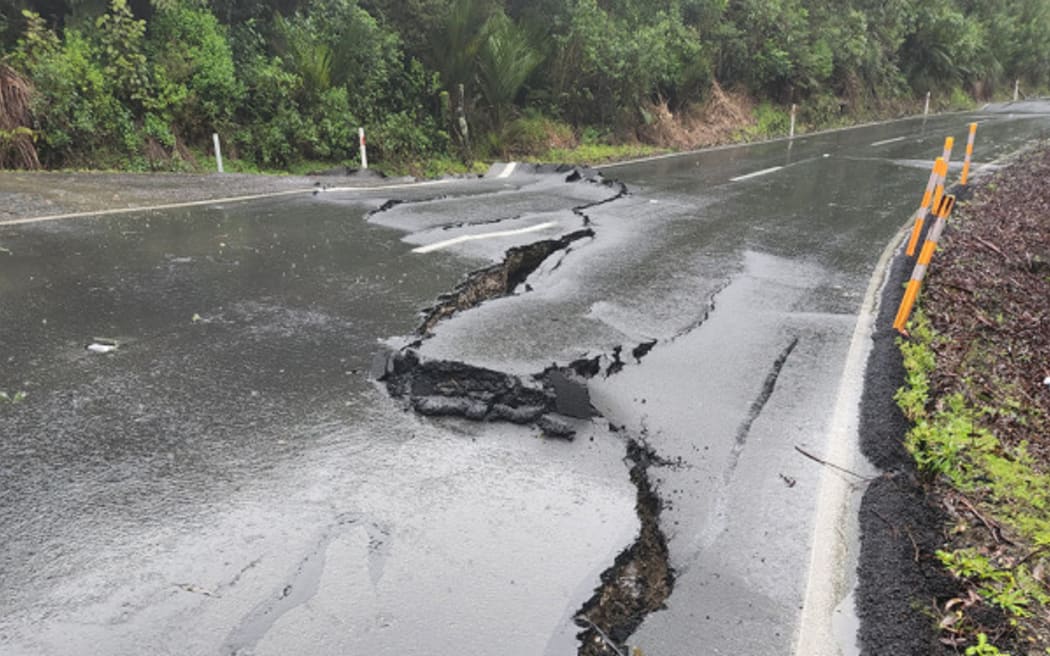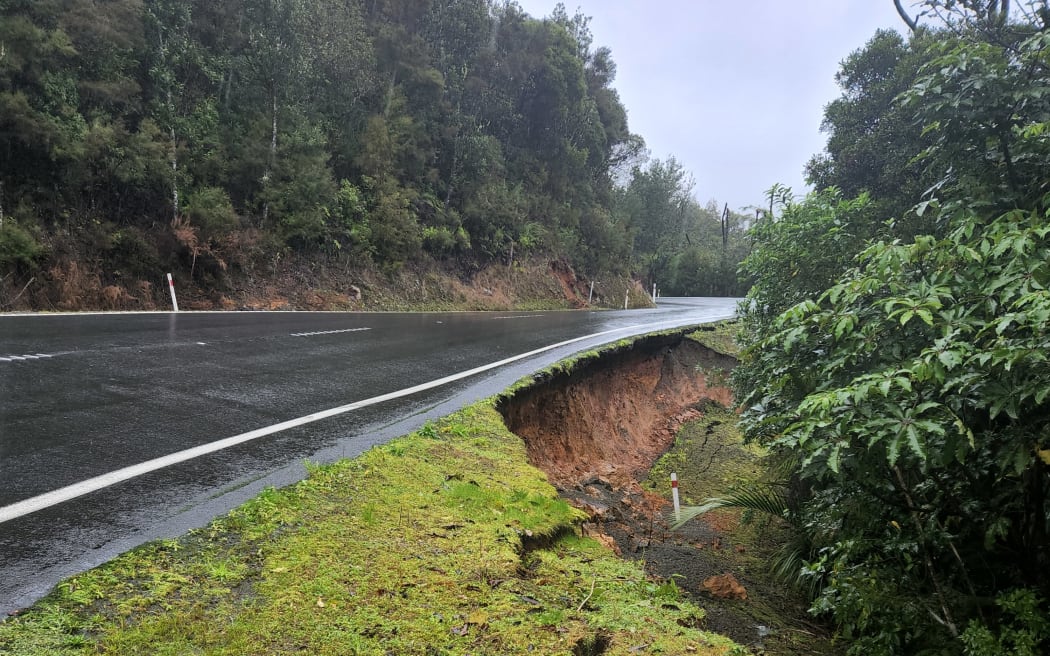Northlanders say slow progress on their region's broken roads is going to cost lives and keep a chokehold on the region's economy.
The indefinite closure of the Mangamuka Gorge - for the second time in as many years - has them asking why State Highway 1 isn't held to the same standard in Tai Tokerau as it is in other parts of the country.
Two-and-a-half weeks since the gorge closed due to flooding and slips, Waka Kotahi has reported "difficult conditions" for workers assessing the damage, and "highly unstable" ground.
Those workers are also bracing for more torrential rain later this week.
In the meantime Kaitaia , the town dubbed the 'gateway to the Far North', remains a little further away from the rest of Aotearoa.
Residents like businessman and farmer Ian Walker have watched their day to day freight costs rise by the thousands of dollars.
"It's quite significant 'cause it's an extra 30 minutes driving [the detour]. It's already expensive to bring goods in and send goods away from Kaitaia because of the state of our roads," he said.
"For me State Highway 1 should be to a decent standard from the Cape to the Bluff. Not just Auckland or Waikato, but the whole length of the road."

Damage on SH1 through Mangamuka Gorge. Photo: Supplied / Waka Kotahi
People from Mangamuka, south of the gorge, argued they were in an even worse situation.
The township comprises a smattering of houses, one dairy, and one radio station.
It used to be 20 minutes drive to Kaitaia, now any lifeline services were least an hour's drive away, via the west coast.
That's according to Google Maps - however locals told RNZ it was more like an hour and a half, due to the fact Kaitaia-Araroa Road was also rain damaged in many parts.
"We've got locals who would normally shop in Kaitaia, would normally shop in Kaitaia, having to go the long way around. I know one teacher that lives in Horeke and their daily commute is now three-and-a-half hours to get to work. On top of being a teacher, that is a long day," Karōria Johns said.
"I really worry about the impact on whanau with the road closures. I think we need to provide more of a wraparound approach, because it's not just a road. It's access to education, work, all the things we need to exist."
Both sides of the gorge, locals shared a sense that Northland's roading infrastructure hadn't received the attention it needed.
Ian Walker said the Mangamuka Gorge had been a problem since the day it was built.
It was never equipped for the heavy vehicles that used it, he said.
"We get temporary patches on potholes. So fixing a road like the Mangamuka Gorge is highly unlikely to be done correctly. It's one of the windiest stretches of road in the world. Thirteen kilometres of bends that practically come back on themselves. Trucks can't turn on most of the corners cause they're just too windy. They end up driving on the other side of the road," he said.
"Surely a geotech survey of the 13 kilometres, work out where all the weak points are and do the job properly - or find another route."
Potholes are a problem that Northland Potholes Facebook page founder John Baird keeps an eagle eye over.
Baird said locals used the page to post pictures of damaged roads to be wary of.
"There was a bit of chat on one of our noticeboards so I thought okay, I'll set up a pothole page, show them the pothole that was dangerous, see if anyone else does it. Suddenly, almost overnight, there were 500 people on the thing," he said.

State Highway One through Mangamuka Gorge has been badly damaged by torrential rain. Photo: RNZ
High on the list of common complaints was State Highway 10 up the east coast.
Potholes weren't a problem there as much as narrow bridges, speed reductions and scalloping of the road surface.
However - it was the main detour that drivers were meant to take to avoid the Mangamuka Gorge.
Baird said he was worried the road would continue to degrade.
"It's got the 50-tonne trucks, it's got the logging trucks...it's got a whole volume of cars, passenger transport that it doesn't normally have, or shouldn't normally have, and isn't really spec'd for," he said.
He said when it came to tourists using the road over summer - and potentially sharing it with trucks - good infrastructure was literally going to be a matter of life or death.
Northlanders told RNZ their message to authorities was "take us seriously", meaning no more quick fixes.
Even the council has requested for MPs to fly over and see the damage themselves.
Karōria Johns said if the gorge was going to be shut for another year, the government couldn't continue to ignore the plight of locals.
"I understand that Nelson's had some devastating damage done to it and I fully empathise with that. But they have a lot more infrastructure and population to support those people in the meantime. Mangamuka doesn't have that. And neither does the area directly around Mangamuka," she said.
"We need some sort of targeted intervention, not just in terms of the roading but how we're taking care of the community in the meantime."
In a statement, Waka Kotahi Regional Manager for Auckland and Northland Jacqui Hori-Hoult said decisions on the nature of repairs and reconstruction - including the time and the cost required to complete them - would depend on the outcome of geotech assessments.
Those geotech assessments were underway, with workers facing "difficult conditions", she said.
"This work being carried out currently includes borehole drilling and 'cone penetration testing' to assess the stability of the road corridor. Ground conditions in the gorge remain highly unstable at several sites - in some locations geotechnical engineers have had to drill down more than 20 metres to find solid rock. The movement in then gorge is likely to continue or even worsen with more torrential rain forecast later this week."
Waka Kotahi was completing the damage assessments as quickly as possible, she said "but it's important that these assessments are thorough, and the work must be undertaken carefully in order to ensure the safety of our workers."
"There are several slip sites to be assessed, and the drilling work at each site can take up to three days to carry out, depending on the conditions."
Waka Kotahi said it would provide more updates as its work continued.


